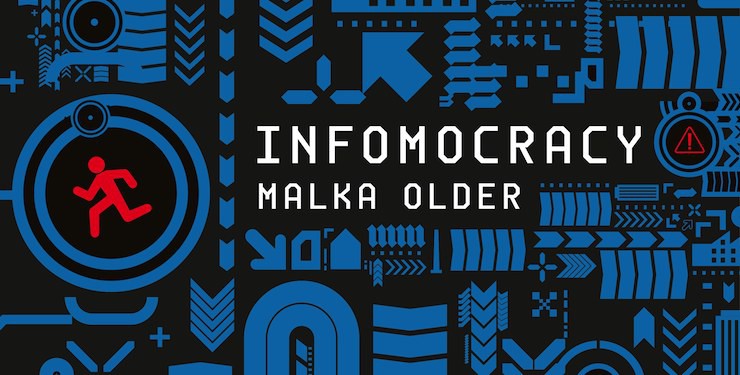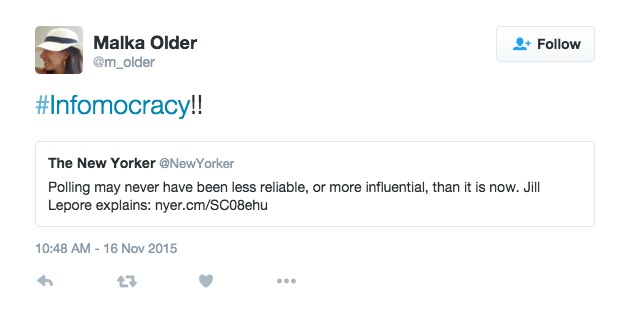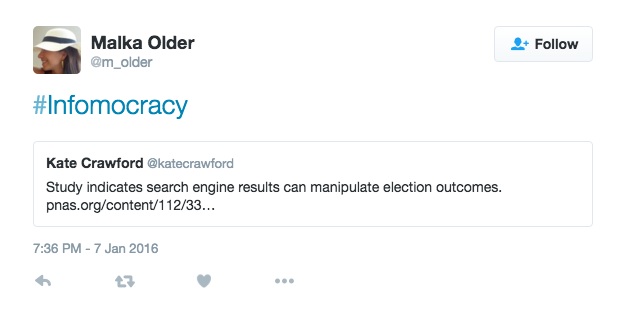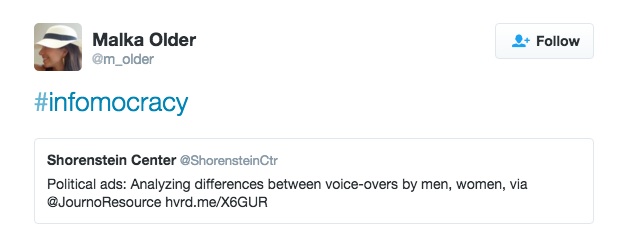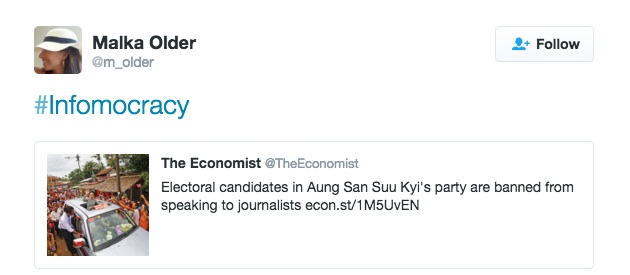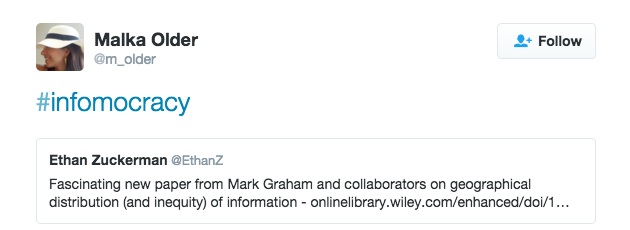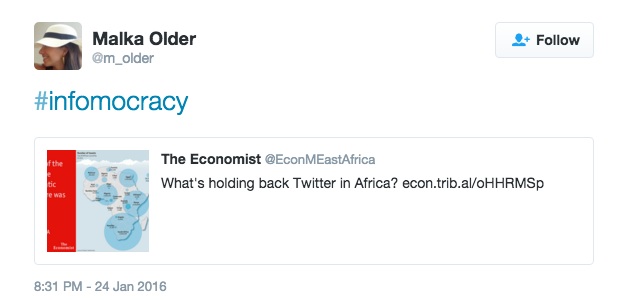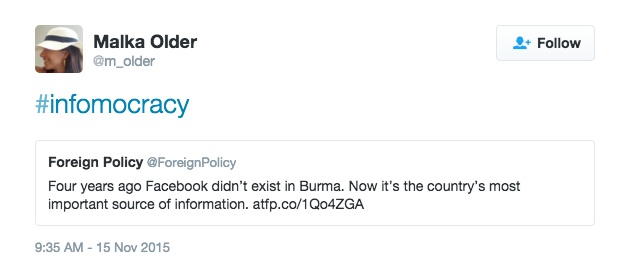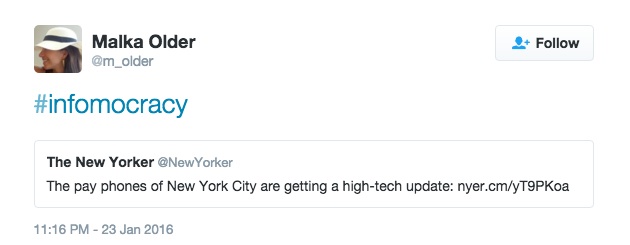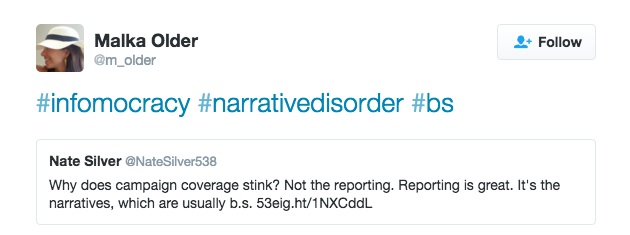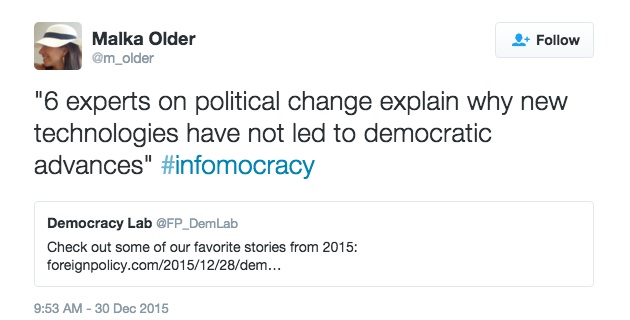I love the drama of elections. I love the constant polls and predictions, measuring the desperate efforts to slide ahead by even a few points.
Then there’s the thrill of tracing the cause and effect between every well-documented micro-event and the tiny ticks up and down in the numbers. Even the way we create those numbers affects those numbers.
Even the way we try to find out about the numbers affects the numbers.
Then there are the subtleties and not-so-subtleties of designing, testing, and projecting images. The strategies and the tactics, the gesturing, the jostling, the amplified personalities that do their Punch and Judy show for us under the bright lights of debate stages and in carefully curated interviews. Every detail becomes important.
Everything is about the projection of information, and controlling information is an attempt to control elections.
Data powers the world.
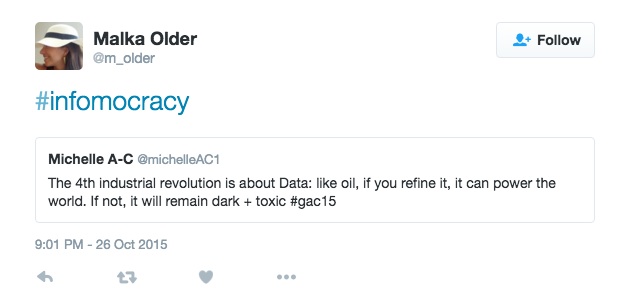
And, like all precious resources, information is not equally distributed:
That distribution is constantly shifting:
The importance of data and a surfeit of information doesn’t mean we know everything. On the contrary, there is always intrigue, because there are always secrets, and there are always scandals, because some of the secrets are going to come out.
(It’s true that image tends to take over reality, but I do love analyzing whatever crumbs of policy make it through.)
The stakes couldn’t be higher: the winner gets some portion of ruling the world. Because of that, and because the people who are willing to undergo these gauntlets are people who love winning, armies of intelligent underlings are deployed, polls and focus groups are read like omens, and overblown amounts of money are squandered on logistics, wardrobes, and catering. It’s a horrendously expensive, relatively violence-free version of epic warfare, complete with heroes, villains, and derring-do.
Elections are stories, and like all stories, they shift according to the predilections and propensities of the teller.
And the tellers of our elections are multifarious and muddled. The lying is, to an extent, understood as part of the game. But lately I’ve found that the different storylines tend to sail past each other, without even meeting for fisticuffs in the middle. Sparring with someone on the opposite side of the contest used to be cherished fun; now I rarely bother. Since the two of us are likely to be working with entirely different sets of information, what’s the point? I hesitate to quote even those pundits I agree with, because I’m not sure I trust their numbers or their facts.
It’s a shame, too, in something of the same way that the ubiquity of guns makes action movies less exciting: instead of fight sequences or creative weapons, we get bangs, flashes, and unrealistically agile heroes paired with unrealistically inaccurate shooters.
If only we had the information management capacity to know what’s going on.
Of course, we do, just like we have the agricultural capacity to prevent anyone in the world from going hungry. We have political fact-checkers and explainers, we have Wikipedia and online encyclopedias and Google Translate, not to mention the papers of record and, rather less to the record, 24-hour cable news. And yet people starve, and others swallow lies, because of the way our resources are managed.
Infomocracy posits a future several decades hence in which a vast global bureaucracy, built from the re-envisioned remnants of the UN and funded by civil action lawsuits over false advertising and cable news mistruths, provides facts on everything. Information annotates advertisements, political speeches, convenience store products, and commemorative plaques, offers explanatory graphs and comparisons for statistics, and projects a detailed history of everything you see at the flick of an eyelash. All of this is in the interest of creating and maintaining an unprecedentedly localized and pluralistic democratic system. Infomocracy takes place in an election year, and as the bureaucrats and spies, techies and security officers of Information rush to track and highlight every lie, omission, unrealistic claim and twisting of the truth, campaign workers for the hundreds of eligible candidates are finding every way they can to subvert the rules. Outside of the established contest, shadowy groups are trying to burn down the system altogether.
This is science fiction, but, as Ursula Le Guin wrote, “Science fiction is not predictive; it is descriptive,” and Infomocracy reflects what we see today. We are working on it. Democracy is being refined and tinkered with and technologized, slowly, in a lot of different ways, with varying degrees of success:
We’re already living in an infomocracy, whether or not we know it.
This article was published simultaneously on the Huffington Post’s Thought Matters blog.
Malka Older is a writer, humanitarian worker, and Ph.D. candidate at the Centre de Sociologie des Organisations studying governance and disasters. Named Senior Fellow for Technology and Risk at the Carnegie Council for Ethics in International Affairs for 2015, she has more than eight years of experience in humanitarian aid and development, and has responded to complex emergencies and natural disasters in Uganda, Darfur, Indonesia, Japan, and Mali. Infomocracy is her first novel.










